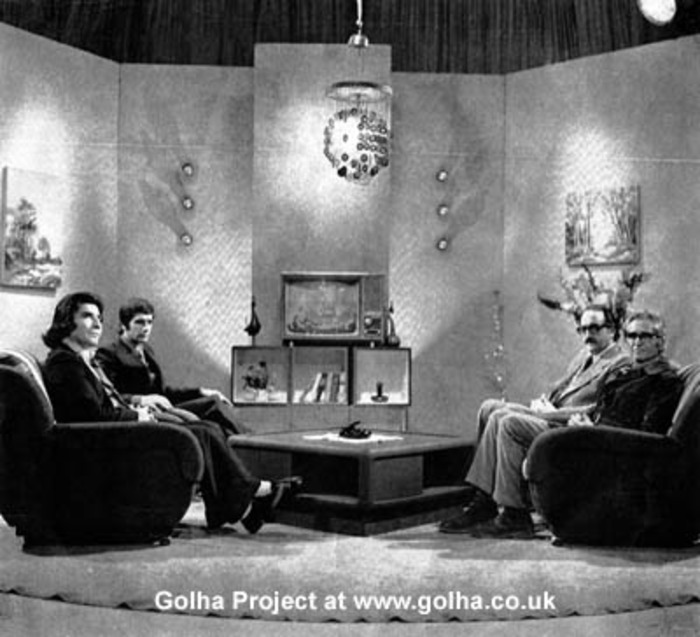‘Abduʼl-Wahab Shahidi

Biography
Shahidi, ‘Abdu’l-Vahhab (1921-), vocalist and ‘ud instrumentalist. He received his preliminary education in music from traditional masters, but upon moving from his hometown to Tehran, he soon found his main teacher in Isma’il Mihrtash, the renowned tar instrumentalist, composer, and Director of the ‘Barbad’ Society for Theater and Music. Shahidi belongs among the vocalists of the second generation members of the Barbad Society. Among vocalists of the first generation, the likes of Adib Khwansari, Malakih Burumand, and Muluk Zarrabi were featured.
Shahidi began performing in the Gulha programmes in 1955-1956 and soon became recognized as one of its main vocalists, making a name for himself alongside eminent vocalists such as Ghulam Husayn Banan, Husayn Qavami, Mahmudi Khwansari, and Akbar Gulpayigani. He remains today an eminent vocalist who, despite his advanced years, vigorously pursues his musical activities. His singing has been recorded in numerous Gulha programmes which are diverse in nature. A number of these programmes include solemn and at times lengthy avaz performances accompanied by eminent solo instrumentalists who play alongside him performing on his personal instrument, the ‘ud, while also often singing in pleasant and harmonious accompaniment to their instruments. He is the first vocalist in the history of Persian contemporary music who has accompanied his vocals with his own instrument, and to have had his performances both in song and music appreciated and recognized by professional instrumentalists. He also made numerous non-vocal performances in the Gulha programmes which include tasnifs and lyrical songs, the best of which include the musical arrangements by Ruhu’llah Khaliqi and Javad Ma‘rufi for the Gulha Orchestra and the Grand Radio Orchestra, as well as those by Faramarz Payvar for the orchestra devoted to Persian musical instruments. In these programmes, Shahidi performed a number of classical Persian compositions.
In regard to talent as a vocalist, Shahidi’s voice is deep, bass and warm, while his style of delivery in the accurate pronunciation of Persian words is unrivalled. One of his main characteristics as a singer is his appreciation and hence talent for accurate and artistic interpretation of the lyrics being sung. In the controversial and gossip-ridden milieu of Persian musicians in which he thrived, he has been renowned for his proverbial charm and elegance of personality. Over the last fifty years he has been able to maintain an enviable niveau of artistic achievement throughout his works, a success achieved by very few other Persian vocalists. Shahidi has had no students of repute although he has released numerous albums of 33 gramophone records and CDs. Owing to inconveniences with which he was faced in early 1980s, he left Iran and resided in the United States for many years, only returning in 2006, where at present he is in the process of releasing his works anew.
Siyamak Bana’i